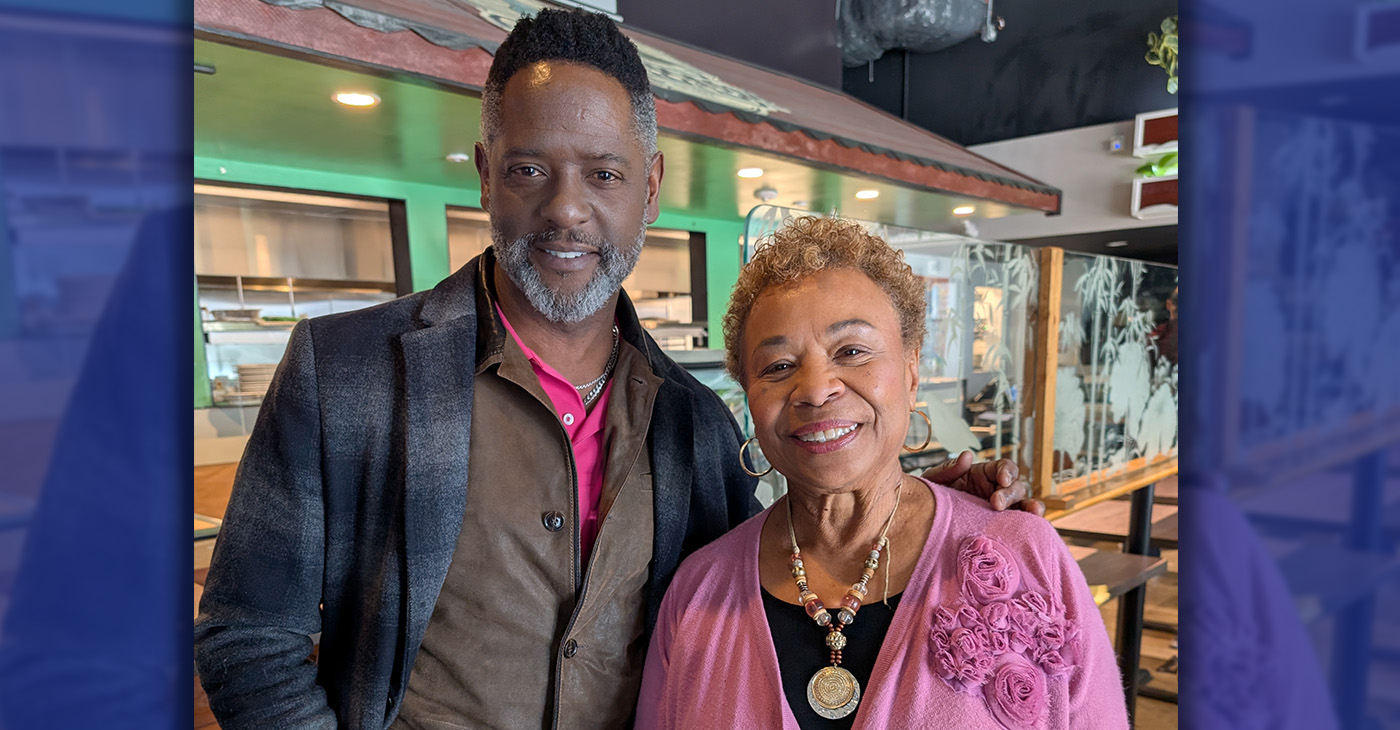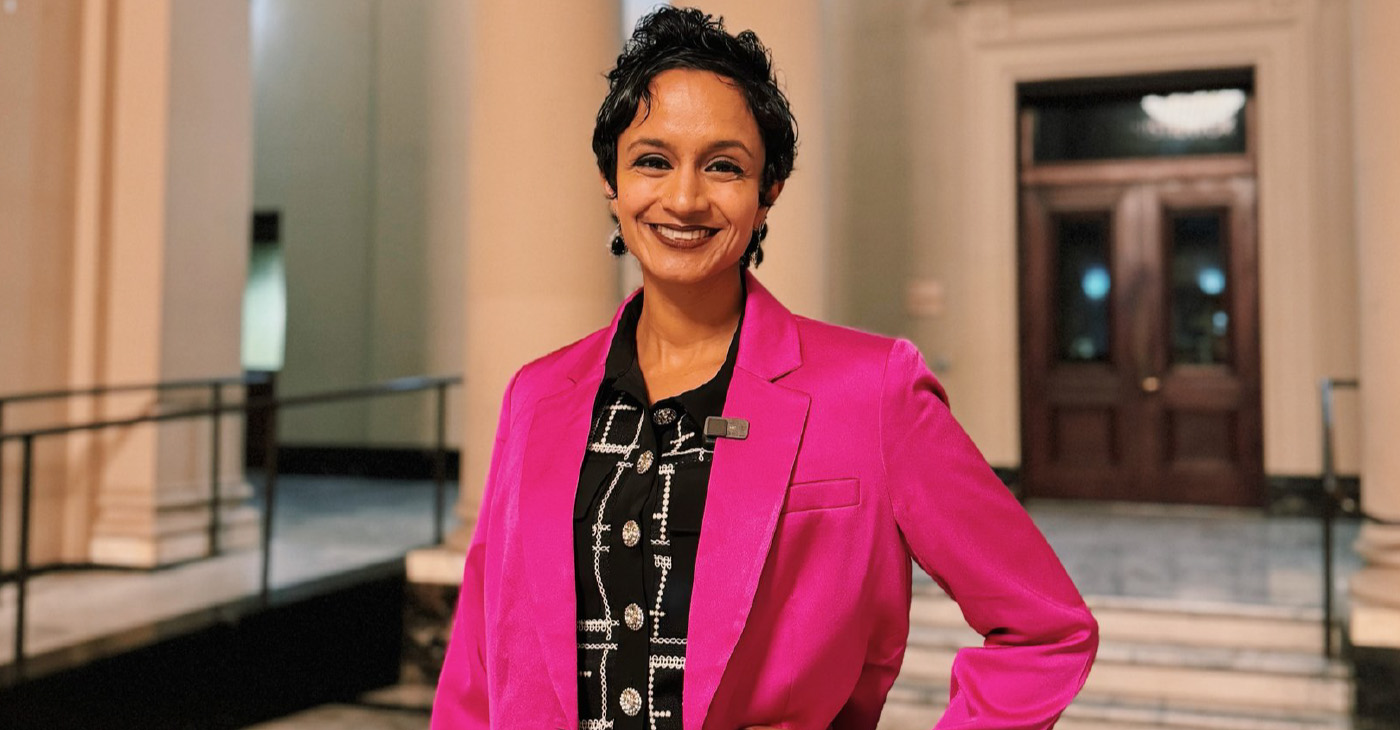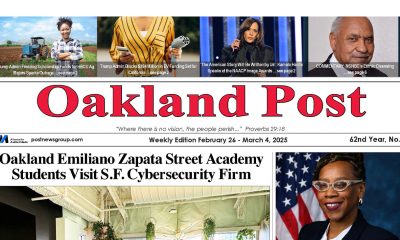Op-Ed
Disregarding Black Life
By Julianne Malveaux
NNPA Columnist
Patrick Lynch, do you remember Oscar Grant? And if you do, Mr. “leader” of the New York Police Department Union, why do you pretend not to understand the reaction that many African American people have to the police killing of Black men? The official reaction to those killings and the arrogance with which many police officers (read Darren Wilson in Ferguson) respond to the fact that they have snuffed out a life.
If you don’t remember Oscar Grant, Mr. Lynch, I do. He was executed on the first day of the same month that President Barack Obama was inaugurated in 2009, ordered from a BART (Bay Area Rapid Transit) train in Oakland, Calif., and compliantly sitting on the platform when he and a group of friends were roughed up, and he was shot. Why? Because his murderer, Johannes Mehserle, said he mistook his Glock gun (with a weight of at least 28 ounces and perhaps as many as 38) for a Taser (which weighs seven ounces).
Just days after the killing, on Jan. 6, 2009, the San Francisco Chronicle described this fiction as “nonsense,” not only because firing a Taser has an entirely different protocol than firing a Glock, but also as noted by The Chronicle a Taser has to be turned on and off, and a Glock does not. Furthermore, Mesherle had used his Taser earlier in the same evening he killed Oscar Grant. He should have known the difference.
I think of Oscar Grant because I spent part of my end-year holiday in San Francisco and Oakland visiting my mom and family. I think of him because I have two nephews, 31 and 28, who regularly rode BART and had life threatening encounters with the BART police. I don’t think of Oscar Grant because of Michael Brown or Eric Garner, because I think of him every January 1. When we wish each other “Happy New Year,” I am bitterly reminded that he won’t have one. Oscar Grant was executed six years ago, and not much has changed in six years, 60 years or two centuries.
Where did the murderer Johannes Mehserle get his police training? In a crackerjack box or an amusement park? Oscar Grant paid the ultimate price, and his family, his baby daughter, paid the price for Johannes Mehserle’s ignorance and murderous actions. Meanwhile, Johannes Mehserle has been able to move through his life, often with the help and support of “law enforcement” agencies.
Johannes Mehserle was so arrogant that he refused to appear at an investigative meeting ordered by his superiors in early January 2009. He sent his lawyer instead and then immediately resigned from BART. It took nearly a month for the Oakland Police Department to arrest Mehserle. His crime was so egregious, his conflicting descriptions of it so glaring, that a judge set his bail at $3 million. He spent 11 months in jail before he was tried in Los Angeles, and convicted of involuntary manslaughter, not murder. He was sentenced to a scant two years and served a meager 11 months in jail before he was released.
Years later, Oscar Grant’s family and the several friends who were also brutally beaten received about $2.8 million in a settlement from a lawsuit. Then, Johannes Mehserle had the temerity to appeal his conviction, with his attorney’s arguing, “All he did was make a mistake.” Fortunately, the State Supreme Court rejected his appeal.
The Mehserle attorneys showed as much a disregard for Black life as the Mehserle execution did. Johannes Mehserle wanted to clear his record. What about Oscar Grant’s life? Patrick Lynch asked that New York protests stop to “respect” the lives of New York police officers so callously terminated. With all due respect and with sorrow and horror, one might ask who ever stopped, paused, considered the life of Oscar Grant.
Mehserle and his team would argue that he is “remorseful” for killing Oscar Grant. He sobbed his way through his testimony in the trial that resulted in his conviction, but one might wonder whether his tears were genuine or designed to lower his sentence. The fact that he appealed his conviction suggests that his remorse, if he had any, was limited.
Johannes Mehserle had the temerity to appeal his conviction, just as some in the New York Police Department had the temerity to turn their backs on their boss, New York Mayor Bill de Blasio. Temerity can be described as audacity, boldness, nerve, gall, and impudence. Or it can be described as a simple indifference to Black life. That’s why it must be asserted that #Blacklivesmatter.
The audacity of explanations, not the murders of Oscar Grant, Eric Garner, Michael Brown, Tamir Rice and so many others explains some of the tension between African Americans and “law enforcement.” You see, while many police perceive most African Americans as potential criminals, many African Americans recognize police officers as potential Johannes Mesherle or Darren Wilson. If Patrick Lynch and his ilk want to stop the tension, perhaps they ought to eliminate their audacious disregard for Black life.
Julianne Malveaux is an author and economist based in Washington, D.C.
###
Activism
Actor, Philanthropist Blair Underwood Visits Bay Area, Kicks Off Literacy Program in ‘New Oakland’ Initiative
These community activations were coordinated with the San Francisco-based non-profit program “Room to Read.” Ray said he is also donating his time to read and take pictures with students to encourage their engagement and to inspire them to read more. The inspirational book “Clifford Ray Saves the Day” highlights Clifford Ray’s true story of saving a dolphin.

By Paul Cobb
New Oakland Series
Opinion Part 3
The Post mentioned three weeks ago that a number of our local luminaries were coming together to support the “New Oakland” movement. As this current national administration continues to eliminate our “legacy” institutional policies and programs left and right, most communities find themselves beyond “frozen” in fear.
Well, esteemed actor, long-time Bay Area supporter, and philanthropist Blair Underwood returned to Oakland this week to speak with city leaders, community trust agents, students, the Oakland Post, and local celebrities alike to continue his “New Oakland” initiative.
This week, he kicked off his “Guess Who’s Coming to Read” literacy program in some of Oakland’s middle schools. Clifford Ray, who played the center position of the 1975 World Champion Golden State Warriors, donated close to 1,000 books. Ray’s fellow teammate Charles “The Hopper” Dudley also gave Converse sneakers to students.
These community activations were coordinated with the San Francisco-based non-profit program “Room to Read.” Ray said he is also donating his time to read and take pictures with students to encourage their engagement and to inspire them to read more. The inspirational book “Clifford Ray Saves the Day” highlights Clifford Ray’s true story of saving a dolphin.
Underwood also spent quality time with the Oakland Ballers ownership group and visited the amazing Raimondi Park West Oakland community revitalization site. In the 1996 TV film Soul of the Game, Underwood played the role of the legendary first Black Major League Baseball player Jackie Robinson and commended the Ballers owners.
“This group of sports enthusiasts/ philanthropists needs to be applauded for their human capital investment and their financial capital investment,” Underwood said. “Truly putting their money and passion to work,” Underwood said.
Underwood was also inspired by mayoral candidate Barbara Lee’s open-minded invitation to bring public-private partnership opportunities to Oakland.
Underwood said he wants to “reinforce the importance of ‘collaborative activism’ among those most marginalized by non-empathic leadership. We must ‘act out’ our discomfort with passionate intentions to create healthy change.”
Activism
Councilmembers Ramachandran, Kaplan, Unger Identify Funds to Save Oakland Fire Stations
Our budget crisis – one of the worst in Oakland’s history – is compounded by the fact that people do not feel safe coming to Oakland due to our public safety crisis. By investing in our fundamental public safety resources today, we can send a signal to the world that Oakland is open for business. We have such a rich and vibrant culture, arts, and food scene that is worth celebrating – but we can only showcase this if we are able to keep our neighborhoods safe. Having fully functioning fire stations are absolutely essential to these efforts.

By Janani Ramachandran
There is no greater concern to the people of Oakland today than public safety. Fire stations are the bread and butter of essential city services – and every day that we have stations shuttered, we imperil the lives of our community members. In response to widespread outcry over the current and planned closure of stations, myself, along with Councilmembers Kaplan and Unger, have painstakingly worked to identify millions of dollars of new funding to save our stations. The legislation we introduced on Thursday, February 13th, will amend our budget to prevent the closure of four fire stations that are currently on the chopping block due to our budget crisis and will re-open two closed stations that have already been closed – Station 25 and 28 – in the near future. The resolution that will provide the funding to keep our stations open will go before the full City Council for a vote at our meeting on Tuesday, March 4th at 3:30 PM – and we invite you to join us at City Hall to share your perspective on the topic.
Our budget crisis – one of the worst in Oakland’s history – is compounded by the fact that people do not feel safe coming to Oakland due to our public safety crisis. By investing in our fundamental public safety resources today, we can send a signal to the world that Oakland is open for business. We have such a rich and vibrant culture, arts, and food scene that is worth celebrating – but we can only showcase this if we are able to keep our neighborhoods safe. Having fully functioning fire stations are absolutely essential to these efforts.
With the devastating Los Angeles fire at the top of people’s minds, terrible memories of Oakland’s own wildfires are re-surfacing from the 1991 Oakland Hills Firestorm to the Keller fire just a few months ago – and how essential fire stations are to mitigating these catastrophes. But in Oakland, our fire stations don’t just fight wildfires – they also provide emergency medical services to our most vulnerable constituents, put out structural fires and encampment fires, and much more.
We recognize that there are a number of competing interests and important initiatives fighting for sparse City resources. But from my perspective, core safety services are the most pivotal functions that a City must spend its resources on – especially given the outcry we have heard around fire stations.
The fight to save our stations is not over. The resolution we introduced is a critical first step, and there are hurdles to overcome. If you support keeping our fire stations open, we invite you to be a part of the solution by making your voice heard at the March 4th City Council meeting at 3:30 pm.
Activism
NNPA Launches National Public Education and Selective Buying Campaign
“We are the trusted voice of Black America, and we will not be silent or nonresponsive to the rapid rise of renewed Jim Crow racist policies in corporate America,” stated NNPA Chairman Bobby R. Henry Sr. “The Black Press of America continues to remain on the frontline keeping our families and communities informed and engaged on all the issues that impact our quality of life.”

Washington, DC: The National Newspaper Publishers Association (NNPA), representing the Black Press of America, has announced the planning and implementation of a national public education and selective buying campaign across the nation in direct response to those corporate entities that have dismantled their respective Diversity, Equity and Inclusion (DEI) commitments, programs and staffing. NNPA Chairman Emeritus Danny Bakewell Sr. explained, “Now is the time for the Black Press of America once again to emphatically speak and publish truth to power.”
“We are the trusted voice of Black America, and we will not be silent or nonresponsive to the rapid rise of renewed Jim Crow racist policies in corporate America,” stated NNPA Chairman Bobby R. Henry Sr. “The Black Press of America continues to remain on the frontline keeping our families and communities informed and engaged on all the issues that impact our quality of life.”
At a recent convening of NNPA member publishers and editors, a united resolve was reached that each member publication of the NNPA will begin a national public education campaign coupled with the release of research data on those American companies that are engaging in efforts to sanction racial injustice, inequitable polices, divisive leadership, and economic apartheid in America.
“We note forthrightly that Black Americans spend $2 trillion dollars annually as consumers of products and services throughout the United States,” NNPA President and CEO Dr. Benjamin F. Chavis Jr. emphasized. “We now must evaluate and realign to question why we continue to spend our money with companies that do not respect us,” Chavis continued. “This now must come to an end. These contradictions will not go unchallenged by 50 million Black Americans who have struggled for centuries to ensure equality, fairness and inclusion in our nation’s democracy.”
A selective buying campaign involves exercising the right to select what we spend our money on and who we spend our money with. We are starting with targeting TARGET.
The following are some of the major American companies that have publicly retreated from Diversity, Equity and Inclusion:
- TARGET
- Lowe’s
- John Deer
- Walmart
- Meta
- Tractor Supply
- Amazon
- McDonald’s
- Ford
-

 #NNPA BlackPress4 weeks ago
#NNPA BlackPress4 weeks agoTarget Takes a Hit: $12.4 Billion Wiped Out as Boycotts Grow
-

 Activism4 weeks ago
Activism4 weeks agoUndocumented Workers Are Struggling to Feed Themselves. Slashed Budgets and New Immigration Policies Bring Fresh Challenges
-

 Activism4 weeks ago
Activism4 weeks agoOakland Post: Week of February 26 – March 4, 2025
-

 #NNPA BlackPress4 weeks ago
#NNPA BlackPress4 weeks agoBREAKING Groundbreaking Singer Angie Stone Dies in Car Accident at 63
-

 Arts and Culture4 weeks ago
Arts and Culture4 weeks agoBeverly Lorraine Greene: A Pioneering Architect and Symbol of Possibility and Progress
-

 #NNPA BlackPress4 weeks ago
#NNPA BlackPress4 weeks agoNAACP Legend and Freedom Fighter Hazel Dukes Passes
-

 #NNPA BlackPress4 weeks ago
#NNPA BlackPress4 weeks agoTrump Kicks the Ukrainian President Out of the White House
-

 #NNPA BlackPress4 weeks ago
#NNPA BlackPress4 weeks agoApple Shareholders Reject Effort to Dismantle DEI Initiatives, Approve $500 Billion U.S. Investment Plan

























































